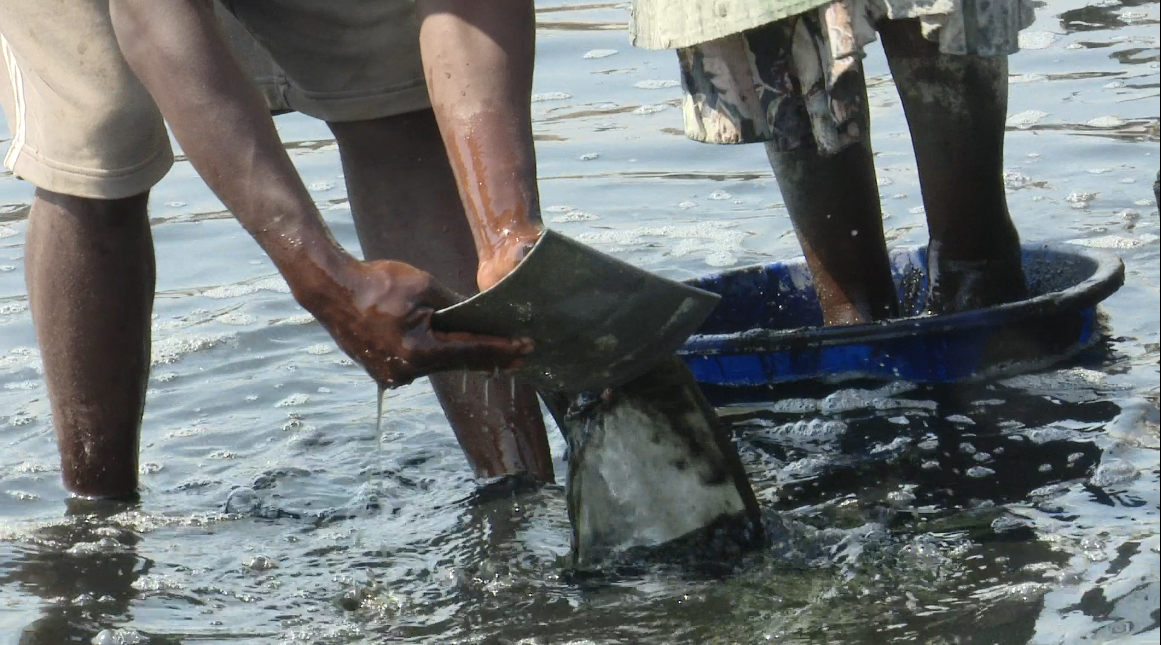Prime
CELEBRATING WOMEN OF INFLUENCE -Justice Julia Sebutinde: The face of anti-corruption

Dr Julia Sebutinde then, complete with the signature makeup and tough expression that made grown up men wail like babies before her anti-corruption court.
What you need to know:
Before she made it to the internatinal scene, one Ugandan woman lawyer became reputable for making grown men gravel like babies in her anti-corruption court, becoming the most memorable face of the anti-corruption fight, writes Brian Magoba
There is a 90 per cent chance of finding a corruption-related story in the pages of many Ugandan newspapers published over the last 15 years. Someone is either resigning over corruption allegations, claiming victimisation as part of a witch-hunt or scapegoat campaign, or ratting out partners in crime.
It makes one wonder whether Uganda ever had a corruption-free era, or whether we have always lived in Eric Wainana’s Nchi ya Kitu Kidogo (Country of Bribes). By necessity, it also raised questions about the effectiveness of the spring cleaning President Museveni attempted.
Justice Julia Sebutinde was the one charged with the Sisyphean task of chairing Judicial Commissions of Inquiry into allegations of corruption in insitutions like the Police.
She had had a stint helping prosecute wrongdoers when she worked for the Ministry of Justice, but the appointment to chair the Sebutinde Commissions made her the most memorable face of the anti-corruption fight, even though there were always two other commissioners for balance’s sake, in this case, Mr James Kahoza and Mrs Fawn Cousens.
Welcome was any effort to try scaling down on a corruption industry that costs Uganda Shs500Bn annually according to World Bank Reports, or 900 billion by 2009 according to a report by the Inspector General of Government (IGG).
The country’s harvest from her sweat
It is for exposing graft that shocked a nation inured to endemic corruption, and the far-reaching effects of her commission’s reports, that she impacted Uganda the most. For instance,two of her recommendations to the Police became most influential for Uganda’s political landscape.
The one which was immediately enacted was her suggestion that the police be led by an army officer. Since then, the position of Inspector General of Police has been held by actively-serving soldiers, the first being Lieutenant General Katumba Wamala before he passed on the baton to General Kale Kayihura in 2005.
The Police is lately accused of assuming a militaristic approach to election-monitoring and crowd control that is increasingly turning to human rights abuse. Political commentators maintain it is Sebutinde’s recommendation that played midwife to this evolution.
The second recommendation, increasing the minimum salary for police officers to curb corruption is yet to be enacted. As late as 2008 , the Police’s Professional Standards Unit could still manage to arraign several traffic officers on charges of soliciting bribes from drivers.
In fact, according to the 2011 East African Bribery Index released by Transparency International (TI), the Uganda Police, having received bribes from 79 per cent of interviewed households, wrestled the title of most corrupt from the Kenyan police,who held it in 2010.
Her ultimatum to Uganda Revenue Authority employees to declare their wealth, and do so correctly, gave satirists like Austin Ejiet much material to work with, and comic relief to the nation. Witty phrases like “as brave as demanding a bribe from Sebutinde” joined Uganda’s informal lexicon.
Uganda’s perception index had risen from 1.8 in 2001 where Uganda was ranked third most corrupt country worldwide to 2.1 in 2002, the year her inquiries ended with the closure of the one into URA. By 2003, the reading was at 2.4. Her “name-and-shame” campaign helped save us from scrapping rock-bottom in the corruption rankings then.
Off to shake up the rest of the world
Sebutinde was on December 13, 2011 elected to the International Court of Justice (ICJ). She had earlier in 2005 been appointed, with secondment from the Uganda government, to the United Nation’s Special Court on Sierra Leone.
In 2007, she became the presiding judge in the Trial Chamber, responsible for hearing the case against Liberia’s ex-President Charles Taylor.
The achievement was not without its detractors. A Wikileaks document insinuated that she had deliberately slowed court proceedings to ensure she was heading the Trial Chamber when they delivered the final sentence.
She nevertheless merited an honorary degree of Doctor of Laws from Edinburgh University in recognition of her contribution to international justice. Uganda remains thankful for her contribution to the anti-corruption crusade, which always takes two steps forwards followed by four steps backwards.




